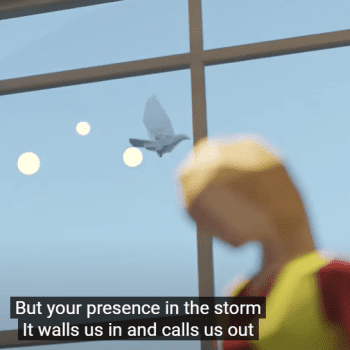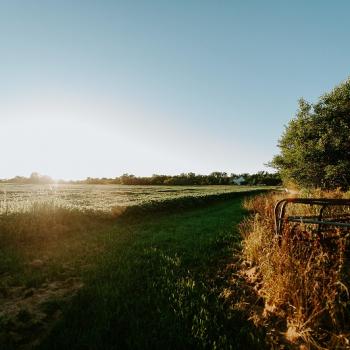This interview with Greg Forster is part of a symposium on vocation between the Patheos Faith and Work Channel and the Patheos Evangelical Channel.

How would you define vocation?
I think of vocation as the imperative God places upon us, and nurtures within us, to live all of life in ways that glorify him. We find this imperative operating in the deepest recesses of our own personal nature; we find it operating in the world around us, in the structures of human civilization that we participate in every day; and we find it in scripture and in the life of Christian discipleship.
What is one thing that you have learned from the Christian tradition in general about vocation?
That it is indispensable to combating sin and building the kind of character God wants from us – to becoming people who combine grace and humility with a profound sense of responsibility and stewardship. The doctrine that all of life responds to a calling from God humbles the pride of the “older brother” legalist and restrains the waywardness of the “younger brother” antinomian. It sets people free from paternalism and injustice, giving us dignity and meaning as human beings made in God’s image and made for a vocation; but at the same time vocation is very strict with us about how we use our freedom, because the only freedom worth having is freedom for righteous living.
Is there any Christian from the past whose life has been a particular model or inspiration to you as you sought to know God’s will for your life?
How many am I allowed to name? I feel a deep affinity with John Calvin in the way he repeatedly sacrificed his life plans when he saw that God was giving him greater opportunities to serve in other ways. He deeply desired a private life of scholarship, but he never got it. He stayed in Geneva when he wanted to leave, and then he left when he wanted to stay, and then he went back when he wanted to stay away – all because he felt responsible to serve God and not himself.
How did you know God was calling you to your particular vocation? How did the Christian community help you discern that call?
If by “particular vocation” you mean my job, it wasn’t hard. I got the opportunity to do something that would have a big positive impact on a lot of people, and that very few people are equipped to do. There wasn’t a lot of difficulty discerning that God would want me to take that job! So there wasn’t much for the Christian community to do in my case.
How has your calling changed over the years, and where have you seen God in that?
God closed a lot of professional doors for me early in my career, and that was very painful. But the series of jobs and activities I undertook as a result equipped me with a very distinctive collection of skills and experiences. And then I got offered a job where I get to do amazing work, and doing this job requires almost exactly that distinctive collection of skills and experiences. Sometimes God’s providence is mysterious, but not in my case.
 (A much shorter version of this interview was published as part of the forum “Vocation is in the Here and Now” in Christian History Magazine issue 110. Image: Pixabay.)
(A much shorter version of this interview was published as part of the forum “Vocation is in the Here and Now” in Christian History Magazine issue 110. Image: Pixabay.)












